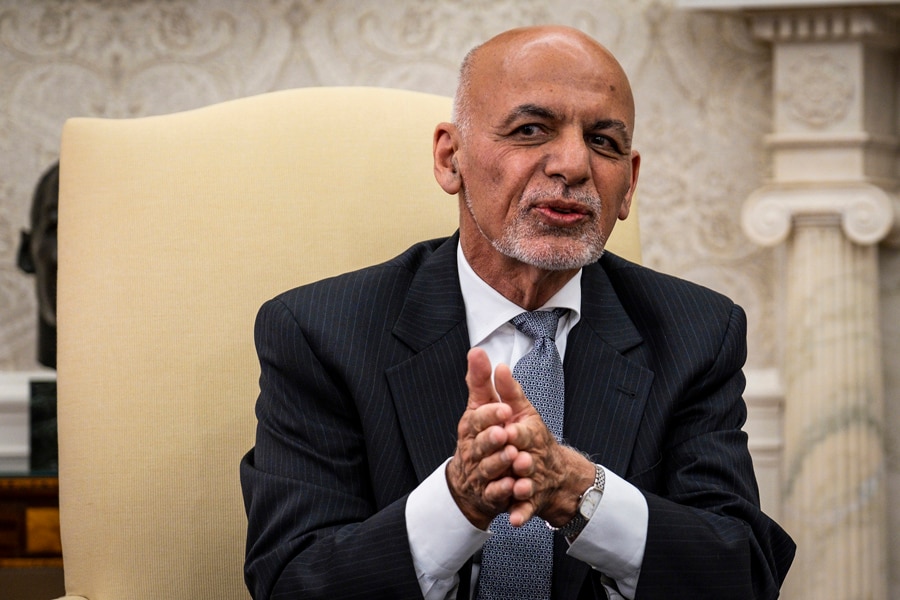
After seven years of failing to fix Afghanistan, Ghani makes a hasty escape
Ashraf Ghani's hasty escape from Kabul scuttled negotiations to ensure a smooth transition of power to the Taliban and left his own people to deal with the deadly chaos and frightening uncertainty under the country's once and future rulers
 Afghanistan President Ashraf Ghani speaks during a meeting with President Joe Biden in the Oval Office at the White House in Washington, June 25, 2021. After fleeing the Taliban’s advance into Kabul, Ghani is stepping into a far less welcome role: that of a failed leader whose hasty escape from Kabul scuttled negotiations to ensure a smooth transition of power to the Taliban. (Pete Marovich/The New York Times)
Afghanistan President Ashraf Ghani speaks during a meeting with President Joe Biden in the Oval Office at the White House in Washington, June 25, 2021. After fleeing the Taliban’s advance into Kabul, Ghani is stepping into a far less welcome role: that of a failed leader whose hasty escape from Kabul scuttled negotiations to ensure a smooth transition of power to the Taliban. (Pete Marovich/The New York Times)
Western technocrat. Would-be populist. Wartime president. Ashraf Ghani tried to inhabit many roles during his years as Afghanistan’s president.
But after fleeing the Taliban’s advance into Kabul this weekend, Ghani — wherever he is — is stepping into a far less welcome role: that of a failed leader whose hasty escape from Kabul scuttled negotiations to ensure a smooth transition of power to the Taliban and left his own people to deal with the deadly chaos and frightening uncertainty under the country’s once and future rulers.
As of Monday, it was not even clear where Ghani was or would end up living. Close aides could not be reached by phone. Some reports suggested that he had gone to neighboring Uzbekistan or Tajikistan or perhaps even Oman. There was talk that Saudi Arabia had agreed to give him asylum, and rumors that he had been accompanied by as many as 200 aides, ministers and Parliament members.
The fallout was swift, as what semblance of civil government that was left in Kabul melted away and thousands of Afghans stormed through Kabul’s international airport — the city’s sole connection to the outside world — desperate to find a way out. But unlike Ghani, almost all of them had no chance of getting out, and several people died in the chaos.
Ghani, 72, defended his decision to bolt in a social media post late on Sunday, writing from an undisclosed location that, “If I had stayed, countless of my countrymen would be martyred and Kabul would face destruction.”
©2019 New York Times News Service







